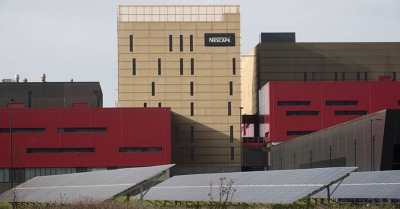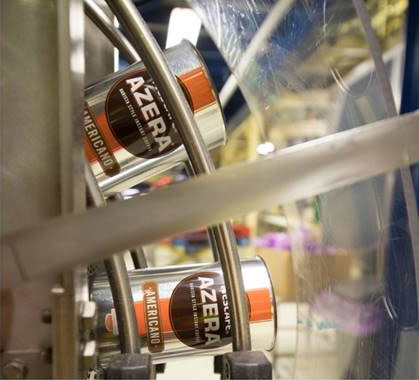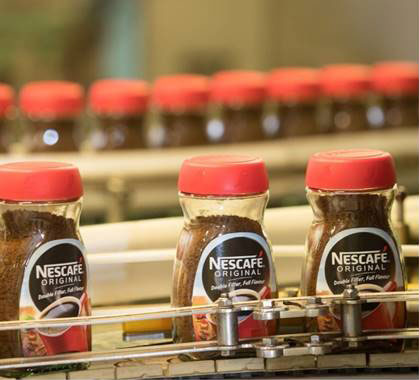
Transport
Apr 25 2024
Birmingham Airport (BHX) has achieved Level 3 (optimisation) of the Airport Carbon Accreditation (ACA) scheme for a second year.
Read more
Nestlé, the world’s largest food and drink company, showed off the results of years of continued investment at its South Derbyshire factory in Tutbury last month.
The high tech factory featured in BBC Two’s Inside the Factory which showcased how the home of iconic Nescafé produces enough coffee for over 4 million cups every day.
Upwards of £350 million has been invested into Nestlé Tutbury, a global ‘Coffee Centre of Excellence’, which in recent years, has included substantial extensions and improvements to the site. Some of these have been:
Tutbury vied with other Nestlé sites around the world for the new investment, and was ultimately successful because of its established track record (soluble coffee has been produced on site since the 1950s)), the scope for expansion at the site, its dedicated very local workforce and the UK’s developed infrastructure for onward export.
Thanks to these investments, Nestlé Tutbury is producing 35,000 tonnes of coffee a year for customers across the UK, the EU and the rest of the world.
Nestlé Tutbury Factory Manager, Eric Heusler said:
Thanks to realising these hard fought investments at Tutbury we now have one of the most productive Nescafé factories. Our top quality coffee, made by our highly skilled local workforce, is exported to over 70 markets around the world – it’s a real success story for British manufacturing.
Nestlé’s Nescafé factory is on the Hatton (Derbyshire) side of the River Dove which forms the boundary with Tutbury (Staffordshire). However, the site is officially called Nestlé Tutbury. This originates from the long history of the site – which began as a dairy factory, making tinned milk from 1901. Back then the only Post Office that could be used to conduct business was across the country boundary in Tutbury, and so the name stuck, and around the world the factory is still referred to as Nestlé Tutbury, despite being officially in Hatton.


Nestlé currently produces Nescafé Gold, Nescafé Original, Nescafé Dolce Gusto, and Nescafé Azera.
The Nestlé Tutbury factory was originally built in 1901 to produce condensed milk. In 1959 the plant underwent its first transformation and started to manufacture Nescafé soluble coffee.

Transport
Apr 25 2024
Birmingham Airport (BHX) has achieved Level 3 (optimisation) of the Airport Carbon Accreditation (ACA) scheme for a second year.
Read more
Global
Apr 24 2024
World-leading materials science and technology consultancy Lucideon is targeting international growth with expansion in the Japanese market.
Read more
Global
Apr 18 2024
The Midlands Engine Partnership will host a Pavilion for the very first time at this year’s UK Real Estate Infrastructure Investment Forum [21-23 May], providing regional partners with a platform to showcase their investment propositions, worth in excess of £42bn, to a global audience.
Read more